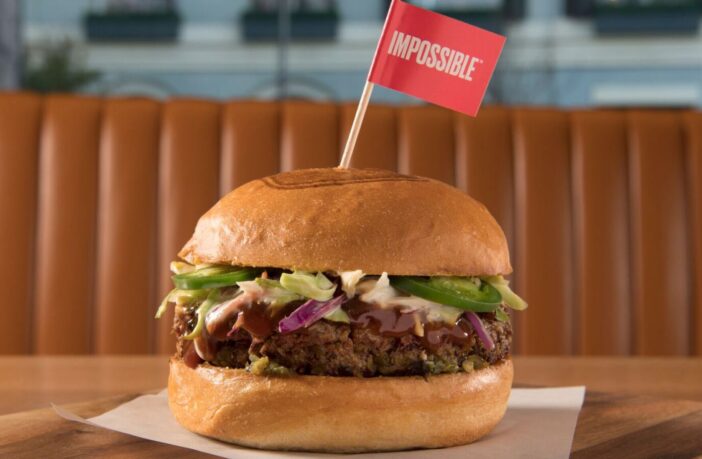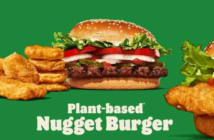One of the big issues facing the alt meat world, both plant-based product manufacturers as well as cultured (lab-processed) meat makers, is scaling. How do companies ramp up production to the point that they make their products cheap enough to become accessible to more consumers? And it goes without saying, become cheaper than real meat.
At the moment plant-based burgers are generally pricier than beef, because they are made on a smaller scale. There is also the issue of animal agriculture subsidies which ensure animal products remain affordable to consumers.
There is however evidence that as demand for non-animal based meat continues to grow so prices are starting to fall.
In the US Impossible Foods, maker of the Impossible Burger, recently lowered its suggested retail price by 20%. According to CNBC the recommended price for U.S. grocery stores is now $5.49 for patties and $6.99 for a 12-oz. package . The cut is apparently the first time the company has lowered its retail prices, in January, though it lowered food distributor prices by an average of 15% to better compete with traditional ground beef.
CNBC suggests that the coronavirus pandemic fueled new interest in meat substitutes.
Impossible’s production capabilities have increased sixfold since 2019, helping it meet all of that new demand. Woodside said the company’s manufacturing has become more efficient as it runs its production lines more frequently and adds more shifts to its schedule. He also said that as Impossible Foods grows, so do its suppliers.
“Our plan was not to move this fast in retail last year until Covid hit,” Impossible President Dennis Woodside said.
“They are able to pass along savings to us,” he said.
Impossible’s key rival in the US Beyond Meat has also been cutting prices to keep up with the competition. The company recently announced a joint venture with PepsiCo to sell snacks and drinks made from plant-based protein, which we took a look at last week.
There is also evidence from the UK. Tesco recently stated that it was aiming for a 300% increase in sales of plant-based meat like burgers and sausages amove which has encouraged some makers to sell products at cheaper prices.
As Jim Mellon points out in his book Moo’s Law, cultured meat has the potential to scale at a much faster level than plant-based meat. In an interview with Transition Earth he said
“Ultimately, I’m not optimistic about the longevity of the plant-based meat market. They only exist because there’s a segment of the population who enjoy the taste of meat, but hate the ethical problems of the animal-based meat industry. All this will be irrelevant once cultured meat comes to market: it will taste identical to “real” meat with none of the drawbacks.”
Though others like Pat Brown, the CEO of Impossible, don’t believe cultured meat will ever take off and that plant-based meat will replace animal-meat at some point in the future.




